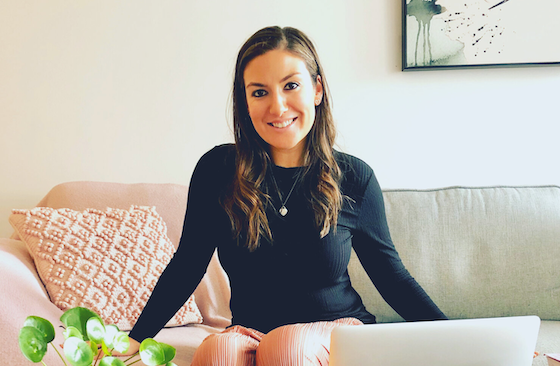Ask The Midwife - Q&A with Amber

In our new Q&A series, we ask midwives about their incredible profession and also questions on topics that expecting mums want answers to. The wonderful midwife Amber starts this series.
How did you get into your profession of midwifery and what are your biggest influences?
I really feel like I ‘fell into’ midwifery! In high school, I did Health and Human Development as a subject and I absolutely loved it, I was so captivated by it all. Then when I was applying for university, I didn’t know what I wanted to do. I remember coming across Midwife in the A-Z of job descriptions and I just really loved the sound of it- so I picked it! I grew up listening to my Mum and my Nanny always talking about how their dream job was to be a midwife, and as a toddler Mum used to catch up me looking at the pictures in her pregnancy books all the time… so I think I was just born to be a midwife!
What's the best part about your job?
I have had so many different roles in my job and my passion has really changed in different times of my career… I used to absolutely love being there with women in labour and loved doing water births, whereas now my passion is really educating women about preparing for postpartum. My favourite part is visiting women at home with their newborns, answering their list of questions, helping them with feeding, giving them strategies for settling and debriefing with them to give them confidence and reassurance. To me, that is where I can make the biggest difference in a woman’s journey.
What are the common misconceptions about what midwives do?
I feel like when people think of midwives, they only think about us ‘catching babies’ and that’s all they think we do and they think it must be such a ‘happy job’ all the time. It is such an incredible job and ‘catching babies’ is absolutely wonderful, but midwives do so much more than that and whilst we are there at such a happy time, it can also be incredibly challenging. We work with loss too, which is incredibly sad and many of us work in systems that are extremely busy and we are often under a lot of pressure.

What is the best way to utilise a midwife and what are some things women miss out on asking for help with?
Seeking out the care of a midwife is so valuable for women both in their pregnancy and postpartum. In pregnancy we can educate women about what to expect for labour, birth and postpartum life with a newborn and help give them strategies to work with their body and help them gain trust in their body. Postpartum, utilising a midwife to teach them how to feed their baby, care for their newborn and cope with their new adjusted role as a parent is so essential.
What are your top tips for postpartum and perineal care?
My top tips for postpartum is to prepare in pregnancy! So many women don’t think about preparing for postpartum and it can come as quite a shock! Having a postpartum plan is essential, think about the reality of life with a newborn baby and that you will need to rest from birth, your baby will feed very regularly and often want to be held in between feeds so trying to plan as much as you can. This may include food- cooking and stocking your freezer with meals or having friends and family bring you food, supermarket home delivery, mental health plan in place, professional support such as a lactation consultant, GP, physio, counsellor etc to call if you need more support. Boundaries around visitors - have people who can help and support you, who can cuddle your baby while you nap or fold some washing!
For your postpartum recovery, rest is important, if you birth vaginally, keeping your perineum clean and dry and using padsicles on your perineum to help reduce swelling is recommended - Noonie has you covered!
What are some of the most common questions your patients ask?
Everyone always asks if they need to try to get their baby in a routine from birth and if they should wake the baby more regularly during the day so their baby sleeps more overnight. My advice - go by your baby! Learn your baby's cues and be led by your baby, watch for feeding cues and feed your baby then. When they are alert and looking around - talk or sing or read to your baby, and watch for tired cues. Babies don’t have the ability to know day/ night in the beginning, it takes time for their circadian rhythm to develop. So have your support system in place wherever possible for The Fourth Trimester and be led by your baby!
What can people do to support women going through postpartum?
I love this question so much!
Ask them what they need! Respect they may not want visitors - ask them what they would like from you when you go over- and don’t go if you’re unwell, practice good hand hygiene and don’t kiss the baby!
Bring them food - a hearty meal they can put in the freezer. Bring them coffee and ask them if there’s anything you can pick up for them from the supermarket!
Offer to hold the baby while they have a shower or nap, ask if you could put on a load of washing or fold washing or unpack the dishwasher for them, and don’t overstay your welcome!
Ask the Mum how she’s feeling! She may want to talk about it but she may not, show you are here to support her whatever she needs!
About Amber
Amber has been a midwife for over eight years and spent the majority of her career working in a caseload program at a large tertiary hospital in Melbourne. She now runs Body, Birth & Baby, a holistic private midwifery practice in Melbourne that aims to educate and support women throughout their pregnancy and postpartum journey. The practice offers home visiting services to that mothers and their families get the extra support they need in what can be a challenging time.





